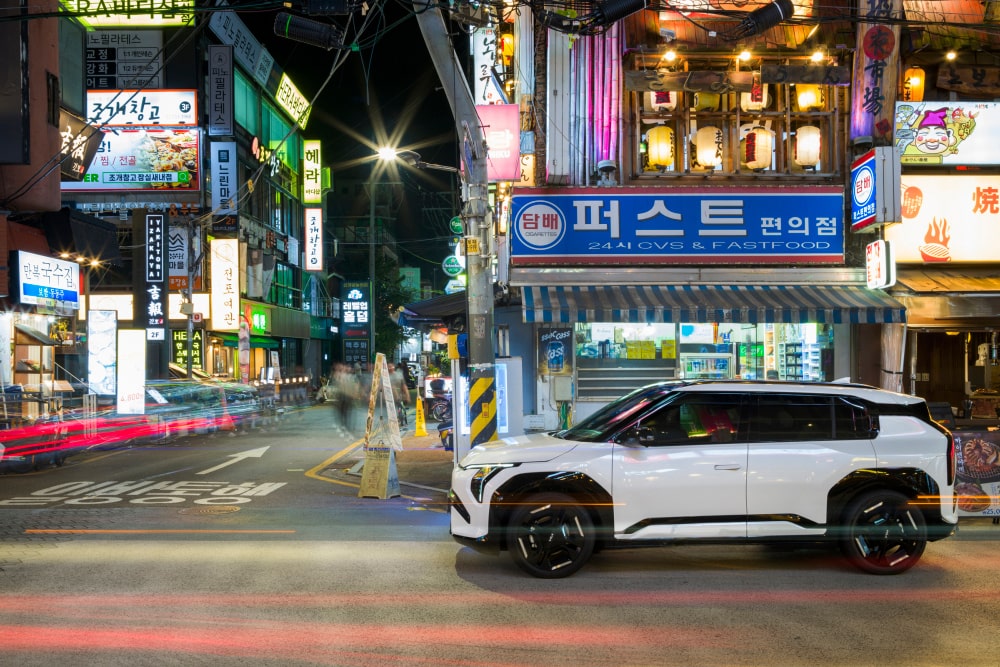
News
October 01, 2025
South Korea floats ban on sale of new petrol and diesel vehicles
South Korea's Ministry of Environment is looking at the possibility of a ban on the sale of new petrol or diesel vehicles by 2035. It would bring South Korea in line with other regions in the world such as the EU.
South Korea is considering a significant shift in its automotive landscape, potentially banning the sale of new petrol and diesel vehicles by 2035. The Ministry of Environment is currently exploring this ambitious plan, a move that would dramatically accelerate the country’s transition to electric and hydrogen-powered transportation.
The proposed ban is not yet finalized, but the Ministry's active consideration signals a serious commitment to reducing carbon emissions and combating climate change. If implemented, the ban would prohibit dealerships from selling new cars powered by internal combustion engines, effectively pushing consumers toward zero-emission alternatives.
This potential policy places South Korea alongside other global leaders already committed to phasing out traditional vehicles. The European Union, for example, has set a similar target date for ending the sale of new petrol and diesel cars, demonstrating a growing international consensus on the need to transition to cleaner transportation technologies.
The move is likely to have a profound impact on the South Korean auto industry, which includes major players like Hyundai and Kia. These companies have already invested heavily in electric vehicle (EV) development, but a ban would necessitate an even faster and more comprehensive shift in their production strategies. It would also require significant investments in charging infrastructure to support a fully electric vehicle fleet.
Beyond the automotive industry, the proposed ban could also affect related sectors, such as fuel suppliers and repair shops. The government would likely need to implement support programs to help these businesses adapt to the changing market.
While the details of the potential ban are still under discussion, the announcement has already sparked debate among consumers and industry stakeholders. Some are concerned about the affordability and availability of electric vehicles, while others welcome the move as a necessary step towards a more sustainable future. The Ministry of Environment is expected to conduct further consultations and studies before making a final decision on the proposed ban.
The proposed ban is not yet finalized, but the Ministry's active consideration signals a serious commitment to reducing carbon emissions and combating climate change. If implemented, the ban would prohibit dealerships from selling new cars powered by internal combustion engines, effectively pushing consumers toward zero-emission alternatives.
This potential policy places South Korea alongside other global leaders already committed to phasing out traditional vehicles. The European Union, for example, has set a similar target date for ending the sale of new petrol and diesel cars, demonstrating a growing international consensus on the need to transition to cleaner transportation technologies.
The move is likely to have a profound impact on the South Korean auto industry, which includes major players like Hyundai and Kia. These companies have already invested heavily in electric vehicle (EV) development, but a ban would necessitate an even faster and more comprehensive shift in their production strategies. It would also require significant investments in charging infrastructure to support a fully electric vehicle fleet.
Beyond the automotive industry, the proposed ban could also affect related sectors, such as fuel suppliers and repair shops. The government would likely need to implement support programs to help these businesses adapt to the changing market.
While the details of the potential ban are still under discussion, the announcement has already sparked debate among consumers and industry stakeholders. Some are concerned about the affordability and availability of electric vehicles, while others welcome the move as a necessary step towards a more sustainable future. The Ministry of Environment is expected to conduct further consultations and studies before making a final decision on the proposed ban.
Category:
Technology